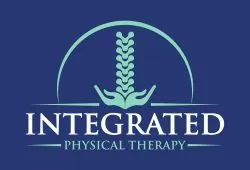Did you recently deliver a baby? If so, you may have experienced an episiotomy. An episiotomy is a surgical cut between the vagina and the anus designed to provide more room for the baby to exit the birth canal. In many cases where an episiotomy is not performed, the area tears naturally as the infant is born. This can increase healing time and cause pain and discomfort for many mothers.
Episiotomies used to be a fairly routine part of giving birth, but the procedure is no longer performed except in special circumstances. For instance, if your baby’s heart rate slows significantly during birth, your obstetrician may elect to perform one for the purpose of hastening the birth. Episiotomies are also recommended for a condition known as shoulder dystocia, which occurs when the baby’s shoulder gets stuck in the birth canal. No matter what the reason for having an episiotomy, physical therapy can help you quickly return to a healthy and active lifestyle.
Healing After an Episiotomy
The average healing time for this procedure is between seven and ten days. Your health care professional will check the area for infection, and you might be prescribed oral antibiotics or a topical cream to help guard against infection. Whether you’ve had an episiotomy or vaginal tearing has occurred naturally during birth, there is always a significant risk of scar tissue developing in the area, and this can develop into issues such as pain during sexual intercourse and incontinence. Fortunately, physical therapy is an effective treatment for perineal tearing.
Pelvic Floor Rehabilitation
Your obstetrician may refer you to a physical therapy practice for pelvic floor rehabilitation, which is the most common way to rebuild the muscles damaged by perineal tears. As their name implies, the pelvic floor muscles comprise the lower part of the pelvis.
One of the most simple — and popular — ways to rebuild your pelvic muscles is known as the Kegal exercise. It involves contracting and relaxing the muscles, and it can be done anywhere at any time..
Because each woman is unique, our physical therapists work with you on an individual basis to devise a customized strategy to suit your personal needs and preferences. Please don’t hesitate to ask request an appointment if you’ve experienced perineal tearing or if you’re concerned it may be a part of the picture after you give birth.




